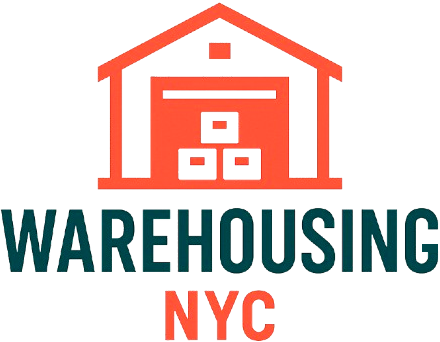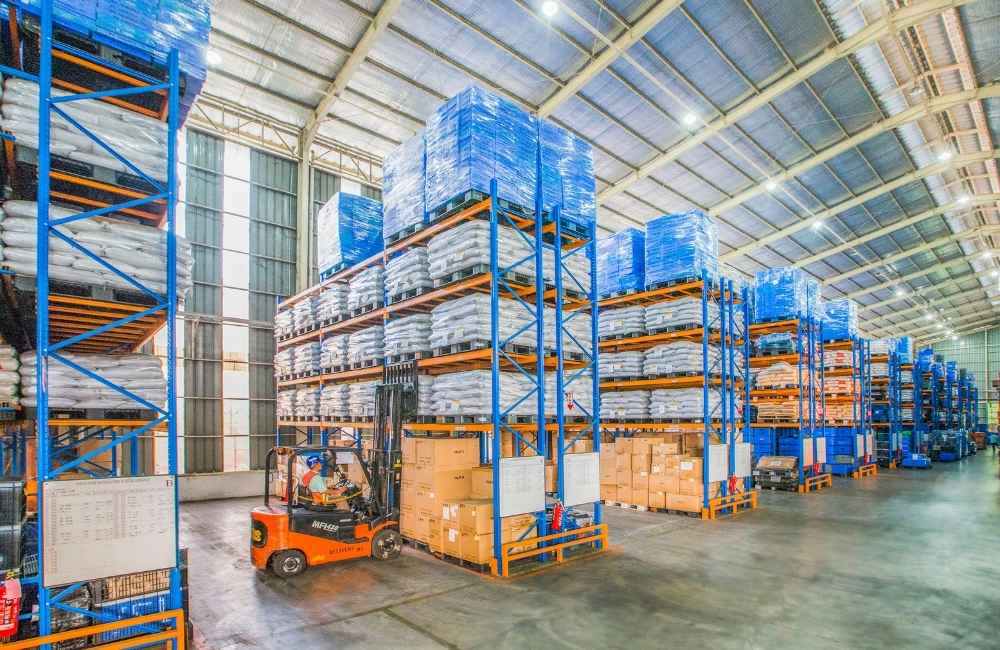Managing food and beverage logistics requires precision, efficiency, and compliance with strict regulations. Businesses in this industry must ensure that their products remain fresh, safe, and properly stored throughout the supply chain. This is where 3PL warehouse services play a crucial role.
From maintaining temperature-sensitive storage to streamlining order fulfillment, logistics and supply chain warehousing are essential for keeping food and beverage businesses running smoothly.
Here are the best practices for choosing and utilizing contract warehousing and fulfillment to enhance operational efficiency.
Table of Contents
Key Takeaways
✔ Food products require specialized storage solutions such as cold, frozen, and dry storage, with real-time temperature monitoring to prevent spoilage.
✔ Implementing automated inventory systems, FIFO/FEFO methods, and traceability measures helps businesses minimize product waste and optimize stock rotation.
✔ Picking, packing, cross-docking, and route optimization play a critical role in maintaining product integrity and ensuring timely deliveries.
✔ Short-term and long-term storage options, along with flexible distribution networks, allow businesses to adapt to seasonal fluctuations efficiently.
✔ Energy-efficient warehouses, eco-friendly packaging, and optimized transportation help food and beverage companies reduce costs while meeting sustainability goals.
How 3PL Warehouse Services Help Food & Beverage Logistics
Food and beverage logistics require specialized solutions to handle perishable goods, regulatory compliance, and supply chain efficiency. 3PL warehouse services provide businesses with the infrastructure and expertise needed to store, manage, and distribute food products efficiently.
By leveraging third-party logistics warehousing, companies can reduce operational costs, improve order accuracy, and ensure product safety throughout the supply chain. Businesses that rely on logistics and supply chain warehousing benefit from enhanced efficiency, reduced overhead costs, and improved customer satisfaction.
- Storage Solutions – Food products require different storage environments, including bulk storage and inventory management solutions, dry storage, cold storage, and frozen storage.
- Order Fulfillment – Efficient picking, packing, and distribution ensure that food products reach consumers in optimal condition.
- Regulatory Compliance – Strict industry regulations govern food handling, requiring contract warehousing and fulfillment providers to follow safety protocols.
- Scalability – Seasonal demand fluctuations require flexible third-party logistics warehousing to accommodate inventory shifts.
Regulatory Compliance & Food Safety Standards
Food safety is a non-negotiable factor for businesses handling perishable goods. Improper storage, labeling errors, or contamination can lead to serious health risks, product recalls, and financial losses.
3PL warehouse services must comply with strict food safety regulations to protect consumers and maintain industry credibility. Regulations such as the FDA Food Safety Modernization Act (FSMA) and USDA guidelines set the foundation for food-safe logistics operations, ensuring that food and beverage products are handled, stored, and transported under the highest standards.
Choosing a third-party logistics warehousing provider that adheres to these regulations helps businesses maintain compliance, reduce liability, and enhance brand trust. Below are the key compliance requirements for logistics and supply chain warehousing in the food and beverage industry:
1. Temperature & Storage Controls
Maintaining temperature integrity is one of the most critical aspects of food safety. Contract warehousing and fulfillment providers must:
- Ensure Proper Cold & Frozen Storage – Refrigerated (34-39°F) and frozen (-10°F or lower) storage must be properly maintained to prevent spoilage.
- Implement Real-Time Temperature Monitoring – Sensors and alerts help detect temperature fluctuations and prevent food degradation.
- Separate Storage Zones for Different Food Categories – Preventing cross-contamination by keeping raw, cooked, and allergenic foods in separate areas.
3PL providers like 3PL Logistics By Best provide temperature-controlled warehousing with real-time monitoring to ensure food safety.
2. Labeling & Traceability
Accurate product labeling and traceability are required to track products throughout the supply chain. 3PL warehouse services must:
- Use Lot Tracking & Expiration Date Management – FIFO (First In, First Out) and FEFO (First Expired, First Out) methods prevent expired goods from shipping.
- Implement RFID & Barcode Scanning – Allows real-time tracking of product movement, inventory levels, and recalls.
- Comply with Country of Origin & Allergen Labeling – Regulations require that packaging clearly states food sources and allergen information.
- Maintain Digital Records for Regulatory Audits – Cloud-based systems store batch data for traceability and compliance verification.
Trusted 3PL providers integrate digital inventory management for real-time traceability and accuracy.
3. Sanitation & Pest Control
A clean warehouse environment is essential to prevent contamination, bacteria growth, and pest infestations. Logistics and supply chain warehousing providers must implement:
- Strict Cleaning & Sanitation Schedules – Routine deep-cleaning of storage areas, equipment, and loading docks.
- Pest Control & Prevention Programs – Regular facility inspections, sealed storage areas, and non-toxic pest deterrents.
- Sanitary Food Handling Protocols – Employee hygiene training, gloves, and designated areas for different food types.
- Compliance with FSMA Preventive Controls Rule – Requires risk-based sanitation measures to avoid contamination.
Third-party logistics warehousing follows industry-standard sanitation protocols to maintain clean, compliant storage environments.
4. Required Certifications for 3PL Food Warehousing
To ensure compliance with global food safety standards, contract warehousing and fulfillment providers should hold the following certifications:
- HACCP (Hazard Analysis Critical Control Point) – Ensures risk-based food safety management practices.
- SQF (Safe Quality Food) Certification – Demonstrates compliance with international food safety and quality standards.
- GMP (Good Manufacturing Practices) – Verifies proper food handling, storage, and sanitation procedures.
- FSMA (Food Safety Modernization Act) Compliance – Ensures food safety preventive controls are in place.
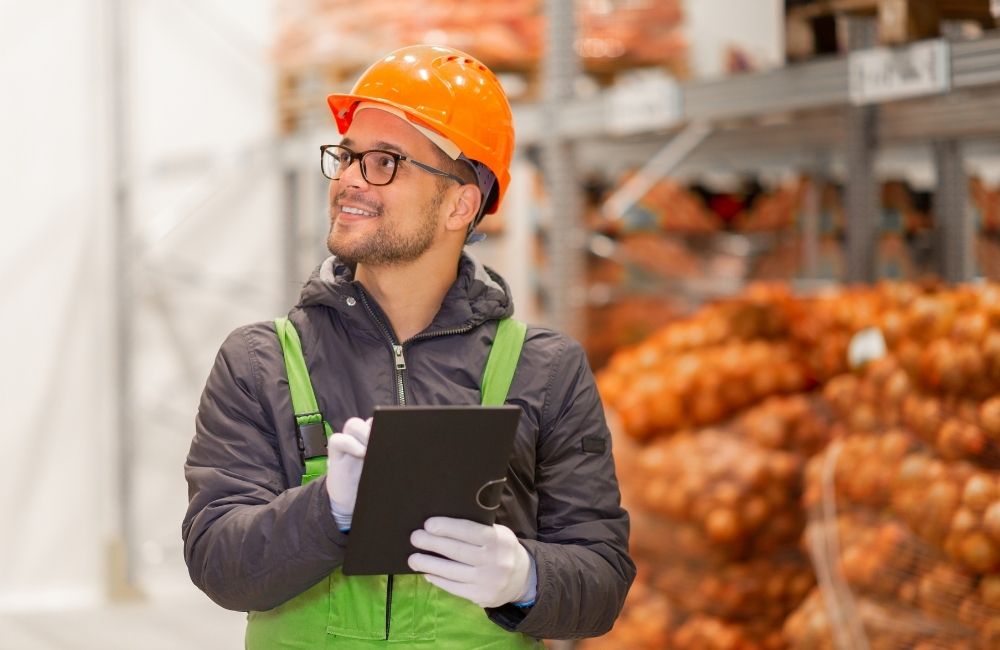
Key Logistics Considerations for Food & Beverage Supply Chains
Ensuring smooth operations in food and beverage logistics requires businesses to prioritize several key logistics factors. 3PL warehouse services that specialize in food handling offer solutions that enhance product integrity and operational efficiency. 3PL Logistics By Best provides a range of services tailored to food and beverage logistics, ensuring seamless storage, inventory management, and distribution.
1. Temperature-Controlled Storage & Handling
Food and beverage products must be stored at appropriate temperature levels to maintain freshness and prevent spoilage. Third-party logistics warehousing providers like 3PL Logistics By Best offer temperature-controlled storage solutions that meet industry standards.
- Cold Storage – Essential for dairy, produce, and perishable goods, maintaining ideal temperatures to preserve quality.
- Frozen Storage – Required for meat, seafood, and frozen meals, ensuring consistent freezing conditions.
- Dry Storage – Suitable for shelf-stable packaged goods, protecting them from humidity and contamination.
- Food Waste Prevention – Over 40% of food loss occurs at the post-harvest and processing stages, making temperature-controlled 3PL warehouse services crucial for reducing waste. Proper cold and frozen storage helps prevent spoilage, ensuring that food remains safe for consumption and extends shelf life.
3PL Logistics By Best utilizes advanced temperature monitoring systems to prevent fluctuations that could compromise product integrity. Their logistics and supply chain warehousing solutions ensure that food and beverage companies meet strict FDA and USDA compliance requirements.
2. Efficient Inventory Management & Expiration Tracking
A well-organized inventory system is essential to reduce waste and optimize order fulfillment. Bulk storage and inventory management solutions help businesses track expiration dates and avoid product spoilage.
- Automated Inventory Systems – Real-time tracking ensures that stock remains fresh and properly rotated.
- FIFO & FEFO Methods – First In, First Out (FIFO) and First Expired, First Out (FEFO) help minimize waste by ensuring older products are used or shipped first.
- Warehouse Management Systems (WMS) – Software solutions that help businesses track inventory levels and forecast demand.
- Traceability Measures – Barcode scanning and RFID tracking enable quick product identification and recall management.
3PL Logistics By Best offers third-party logistics warehousing solutions with real-time inventory visibility. Businesses looking for a more advanced WMS-integrated inventory solution can consult them for customized software integration.
3. Streamlined Order Fulfillment & Distribution
Fast and accurate fulfillment is critical in the food and beverage industry, where timely deliveries ensure freshness and customer satisfaction. 3PL warehouse services optimize order fulfillment processes with:
- Picking and Packing Services – Ensuring correct order assembly for wholesale and retail distribution.
- Cross-Docking Services – Minimizing storage time by transferring shipments directly from inbound to outbound transport.
- Route Optimization – Reducing delivery times with efficient transportation planning and GPS tracking.
- Omnichannel Fulfillment – Supporting distribution across retail, eCommerce, and direct-to-consumer channels.
3PL companies specialize in contract warehousing and fulfillment, offering businesses streamlined distribution with LTL (Less-than-Truckload) and FTL (Full Truckload) shipping solutions. Companies requiring customized last-mile delivery solutions can consult 3PL Logistics By Best for expert recommendations.
4. Scalable Solutions
The food and beverage industry experiences seasonal fluctuations in demand, requiring flexible storage and distribution solutions. Third-party logistics warehousing providers help businesses scale operations efficiently:
- Scalable Storage Solutions – 3PL Logistics By Best offers short-term and long-term storage to accommodate seasonal inventory surges.
- Flexible Distribution Networks – Nationwide and regional logistics and supply chain warehousing to adjust to changing demand patterns.
- Risk Mitigation Strategies – Backup inventory planning and alternative transportation options ensure supply chain stability.
5. Sustainable & Cost-Effective Logistics Solutions
Sustainability is becoming a key concern in contract warehousing and fulfillment. 3PL warehouse services implement eco-friendly solutions to reduce waste and cut costs:
- Energy-Efficient Warehouses – Using LED lighting and climate-controlled storage to minimize energy consumption.
- Eco-Friendly Packaging – Offering sustainable alternatives to reduce plastic waste in shipping.
- Optimized Transportation – Reducing carbon footprint with route planning and consolidated shipments.
- Food Waste Reduction – Cutting consumer food waste by 20%-25% by 2030 could result in global savings of $120-$300 billion annually. By utilizing real-time inventory tracking, demand forecasting, and efficient storage solutions, 3PL warehouse services help businesses minimize spoilage and maximize cost savings.
3PL Logistics By Best provides bulk storage and inventory management solutions that prioritize efficiency and sustainability. Businesses looking for specialized sustainability solutions can consult them for tailored recommendations.
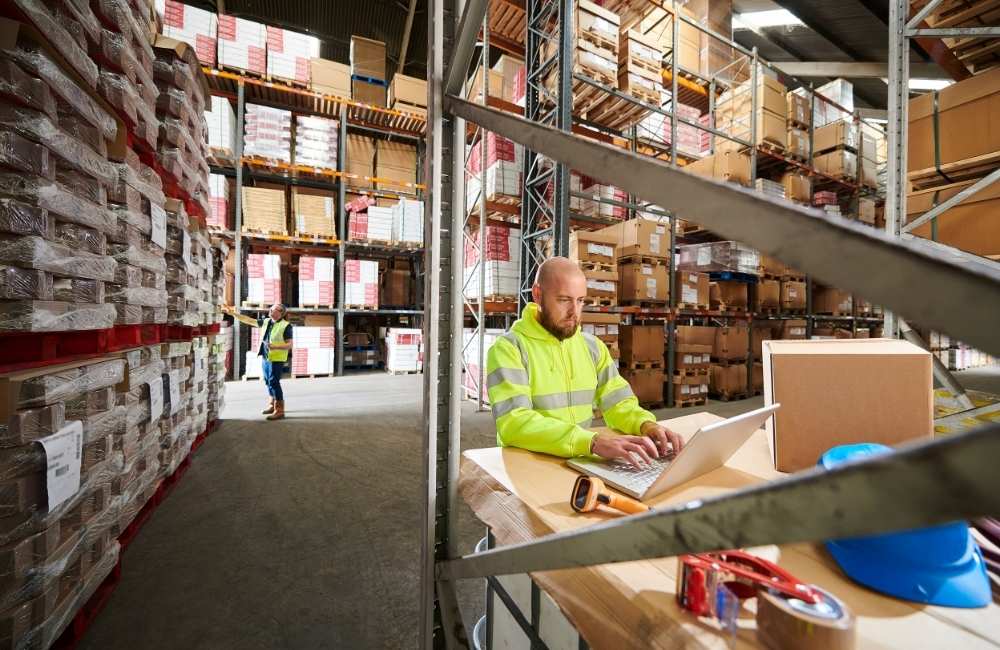
How to Choose the Right 3PL Warehouse Services
The food and beverage industry requires specialized logistics solutions, making it essential to choose a provider with the right expertise, infrastructure, and compliance measures. Businesses should evaluate potential third-party logistics warehousing partners in New York City based on the key factors.
Key Considerations When Selecting a 3PL Warehouse Provider
1. Industry Experience & Specialization
Not all 3PL warehouse services are equipped to handle the unique challenges of food and beverage logistics. A provider with specialized experience in this sector will have:
- A deep understanding of perishable goods handling, cold chain logistics, and regulatory requirements.
- A proven track record of working with retailers, wholesalers, and foodservice providers.
- The ability to customize storage, inventory management, and distribution strategies based on product type.
2. Compliance & Certifications
Regulatory compliance is a top priority for contract warehousing and fulfillment providers in the food industry. A reliable third-party logistics warehousing partner should have:
- FDA, USDA, HACCP, and SQF certifications for food handling and storage.
- Strict sanitation protocols to prevent contamination and maintain food safety.
- Robust traceability measures to ensure quick and effective recalls when necessary.
3. Technology & Inventory Management Systems
A modern warehouse management system (WMS) is essential for maintaining real-time visibility of inventory and improving order accuracy. Look for a 3PL warehouse services provider that offers:
- Real-time inventory tracking with barcode scanning and RFID technology.
- Cloud-based reporting tools for accurate stock level monitoring.
- AI-driven demand forecasting to reduce waste and optimize inventory levels.
- Automated expiration date management to ensure FIFO (First In, First Out) and FEFO (First Expired, First Out) compliance.
4. Scalability & Seasonal Demand Management
The food and beverage industry experiences fluctuating demand due to seasonal trends, promotional events, and holiday surges. A scalable third-party logistics warehousing provider should offer:
- Flexible storage solutions that expand or contract based on demand.
- On-demand labor and resources for peak seasons.
- Adaptive distribution networks to accommodate changing shipment volumes.
- Cross-docking services to minimize storage time and reduce costs.
5. Geographic Location & Distribution Capabilities
Proximity to major transportation hubs, ports, and urban centers plays a significant role in reducing delivery times and transportation costs. The ideal contract warehousing and fulfillment provider should have:
- Strategic warehouse locations near key supply chain routes.
- Multi-channel distribution support for retail, eCommerce, and wholesale shipments.
- Strong carrier partnerships for cost-effective and timely deliveries.
Questions to Ask a 3PL Warehouse Provider
Before finalizing a third-party logistics warehousing partnership, businesses should ask the following questions:
1. What food safety certifications does your facility have?
Ensures compliance with FDA, USDA, HACCP, and industry standards.
2. How do you handle temperature-sensitive products?
Confirms whether the 3PL warehouse services provider offers cold and frozen storage with real-time monitoring.
3. What inventory tracking systems do you use?
Verifies the presence of WMS, barcode scanning, and RFID tracking for efficient inventory management.
4. Can your facility scale to meet seasonal demand changes?
Determines the provider’s ability to adapt to high-demand periods and manage surges.
5. What sustainability initiatives do you implement?
Ensures commitment to eco-friendly packaging, energy-efficient warehousing, and optimized transportation routes.
Frequently Asked Questions
What is the difference between 3PL and 4PL in logistics?
3PL (Third-Party Logistics) providers focus on handling specific supply chain functions such as warehousing, order fulfillment, and transportation. 4PL (Fourth-Party Logistics) providers, on the other hand, act as strategic partners that oversee and manage the entire supply chain, often coordinating multiple 3PL providers to optimize logistics operations. Businesses looking for direct warehouse and distribution support typically use 3PL services, while those seeking a higher-level supply chain management solution may opt for 4PL services.
How do 3PL warehouse services handle reverse logistics?
3PL warehouse services play a crucial role in reverse logistics, managing product returns, exchanges, refurbishments, and recycling. They streamline the process by inspecting returned goods, restocking eligible products, and disposing of or recycling damaged inventory. This helps businesses reduce waste, recover costs, and maintain customer satisfaction by offering efficient and hassle-free returns processing.
What role do 3PL warehouse services play in e-commerce fulfillment?
3PL warehouse services support e-commerce businesses by storing inventory, processing orders, and handling shipping and returns. They provide automated fulfillment solutions, allowing online retailers to scale efficiently without investing in their own warehousing and logistics infrastructure. By leveraging real-time inventory tracking and multi-channel fulfillment, 3PL providers help e-commerce brands improve order accuracy, shipping speed, and overall customer experience.
How do 3PL warehouse services help with customs clearance for international shipping?
3PL providers assist businesses in navigating complex customs regulations, documentation, and import/export duties for international shipping. They ensure compliance with tariff classifications, trade agreements, and country-specific regulations, reducing the risk of delays or penalties. By leveraging their expertise in customs brokerage and regulatory requirements, 3PL warehouse services help businesses expand into global markets with seamless cross-border logistics solutions.
What are the cost considerations when outsourcing to a 3PL warehouse service?
The cost of 3PL warehouse services varies based on factors such as storage space, order volume, transportation fees, and technology integration. Businesses should assess whether outsourcing logistics is more cost-effective than managing fulfillment in-house, considering labor, infrastructure, and scalability benefits. While 3PL services help reduce overhead costs and improve efficiency, it’s essential to compare pricing models, including flat-rate, per-order, or per-pallet fees, to find the best fit for a company’s budget and operational needs.
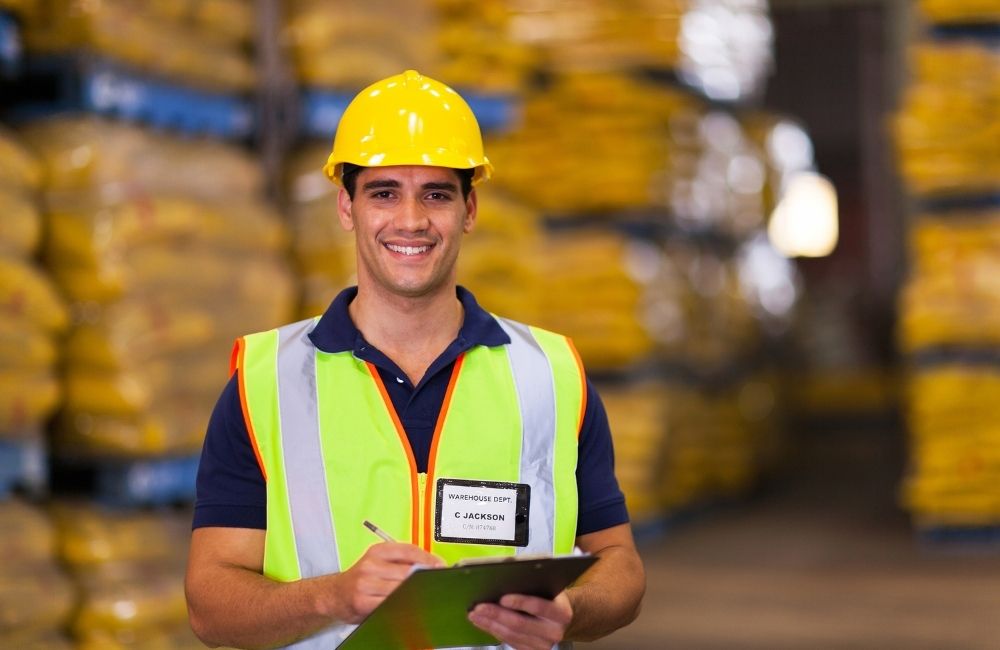
Partner with 3PL Logistics By Best for Reliable Warehouse & Fulfillment Solutions!
Managing food and beverage logistics requires efficiency, compliance, and flexibility, and 3PL Logistics By Best is the trusted partner for businesses in New York City. Whether you need temperature-controlled storage or scalable warehousing, 3PL Logistics By Best has the expertise and infrastructure to handle your supply chain needs. Our state-of-the-art facilities in New York City ensure that your products are stored safely and delivered promptly, keeping your business running smoothly.
